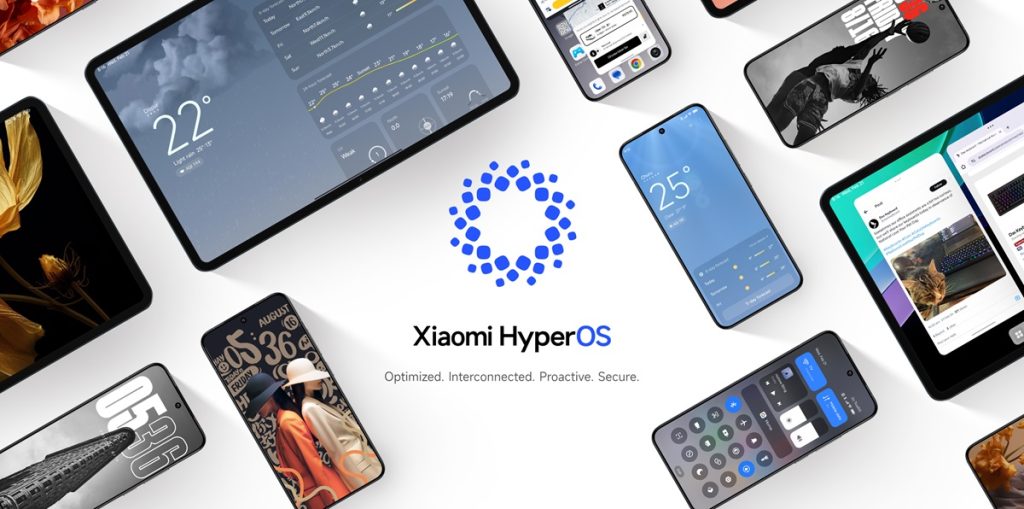
Xiaomi has introduced HyperOS, a new operating system designed to connect personal devices, cars, and smart home products seamlessly.
Built on five key pillars—System Level Optimization, Interconnectivity, Active Intelligence, Privacy & Security, and Open Platform—HyperOS promises to cater to all your needs efficiently.
Performance of HyperOS
HyperOS boasts remarkable performance enhancements. It leverages Open Source Xiaomi Vela to enrich user experience.
With a 14% reduction in response delay, 17% in message delivery delay, and 16% in task switching, the system ensures peak performance while optimizing power usage, powered by Apache 2.0.
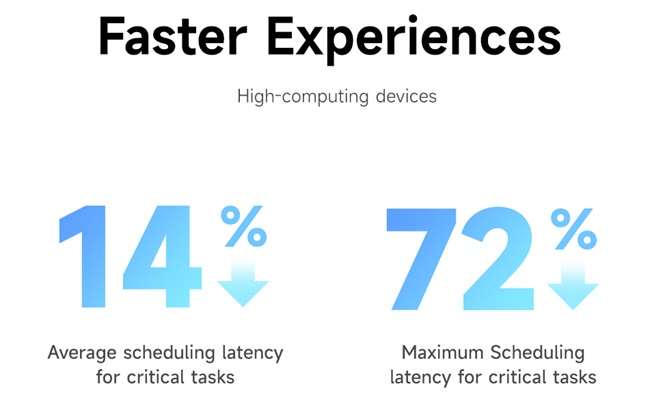
The system also offers accurate load evaluation, analyzing thread relationships comprehensively for precise CPU load assessments.
It delivers faster experiences with up to a 14% reduction in average scheduling latency for critical tasks and a 72% reduction in maximum scheduling latency for such tasks.
Furthermore, lightweight devices experience a 14% reduction in Interrupt response delay, 17% in message delivery delay, and 16% in task switching delay, as per Xiaomi Internal Labs.
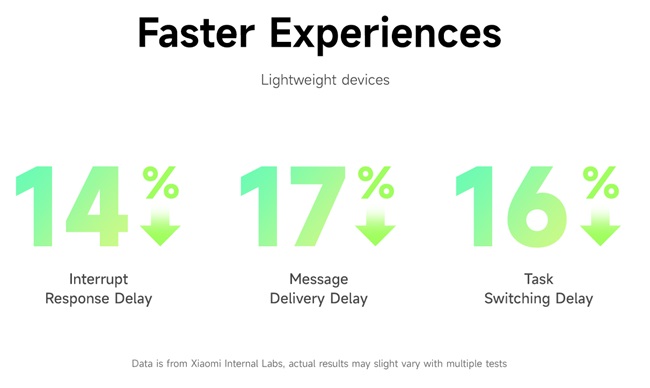
- HyperOS significantly reduces system storage requirements for smartphones compared to MIUI 14, offering 9.14GB as opposed to 12.35GB.
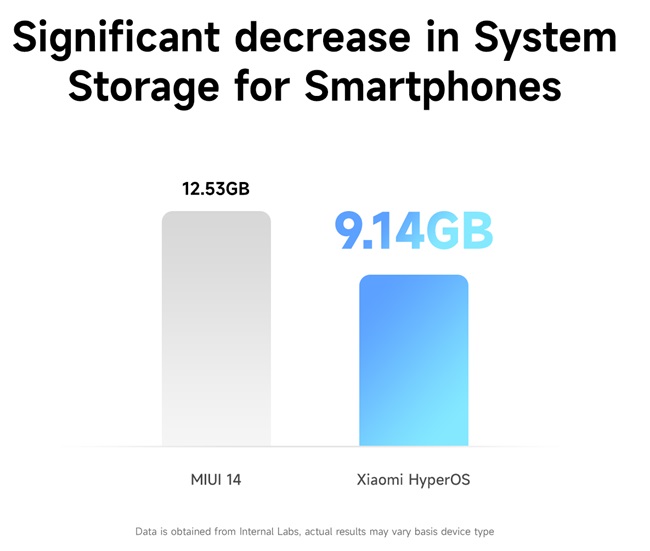
- Additionally, it ensures smooth I/O performance with almost zero attenuation, providing 50-month IO performance.
- The system improves OTA storage and performance, reducing OTA occupancy by 79% and OTA time by 24%.
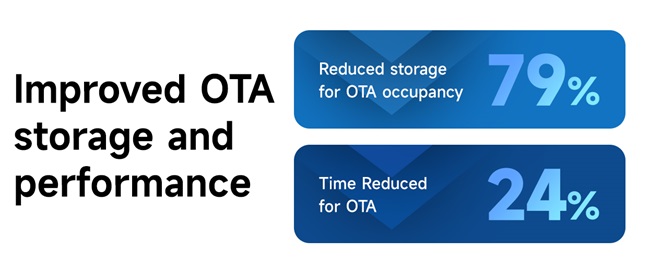
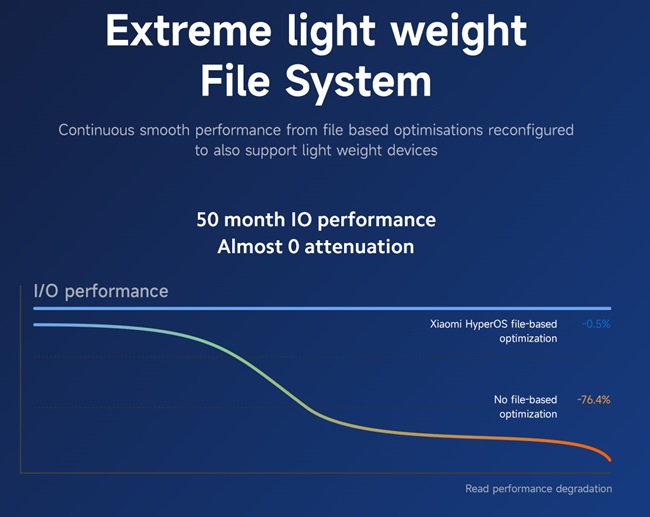
Personalization of HyperOS
HyperOS prioritizes personalization with its Alive Design Philosophy. It presents a redesigned lock screen with multiple personalization options.

- The Control Centre is revamped for better accessibility, accompanied by a new media player widget, re-designed system icons, and diverse UI experiences.
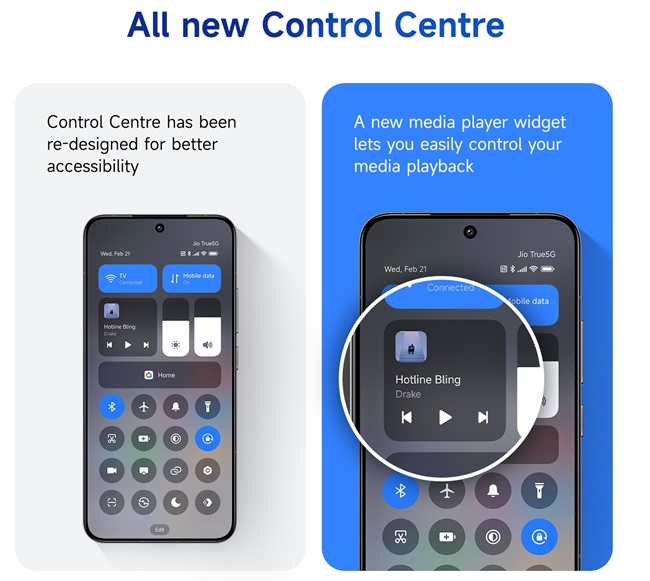
- The system font, MiSans, supports over 600 languages, 20 writing systems, and 100,000+ Glyphs.
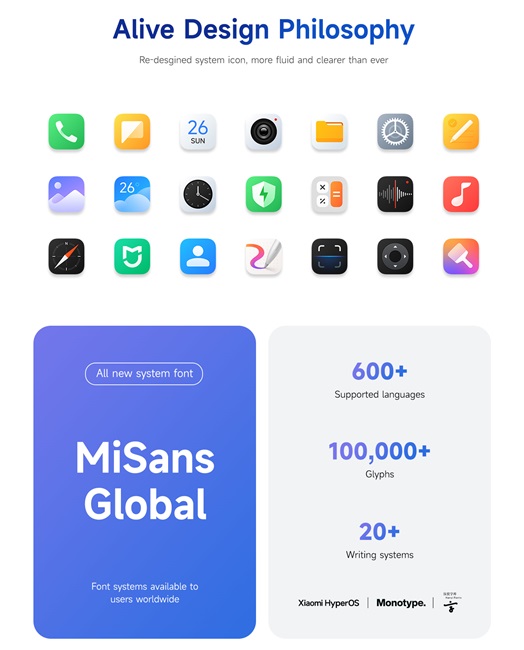
- The upgraded Floating Window allows for viewing multiple apps simultaneously, with a new Workstation mode for enhanced productivity on tablets. Additionally, the Weather app has also been redesigned.
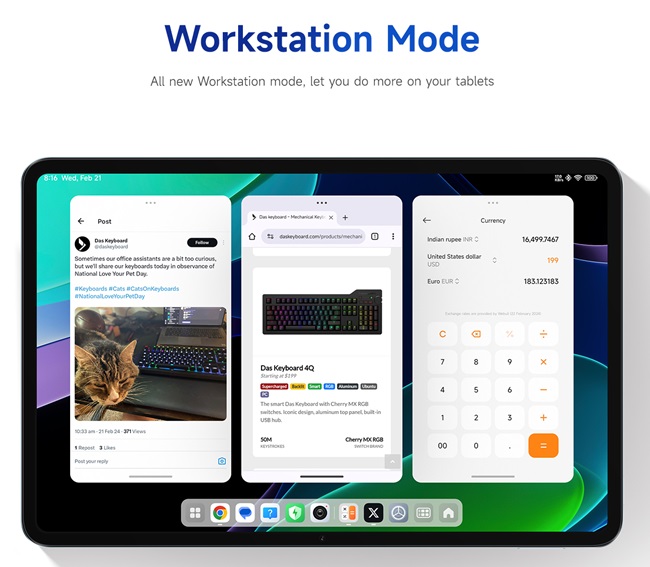
Interconnectivity features
HyperOS facilitates seamless device connectivity through various features:
- Home screen+: Enables effortless drag-and-drop between phone & tablet.
- Shared clipboard: Allows for easy copy-paste across devices.
- Notes app: Permits capturing photos on mobile and inserting them directly into Xiaomi tablets’ notes.
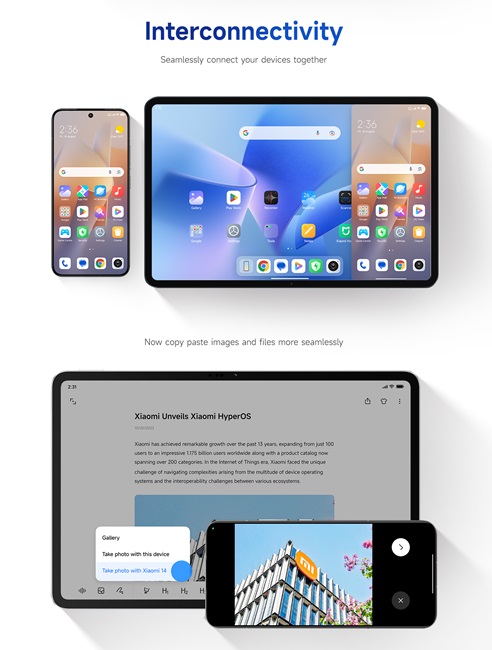
Other new features of HyperOS
HyperOS introduces several innovative features:
- Xiaomi Smart Hub: Integrates independent devices, providing real-time status updates and active control.
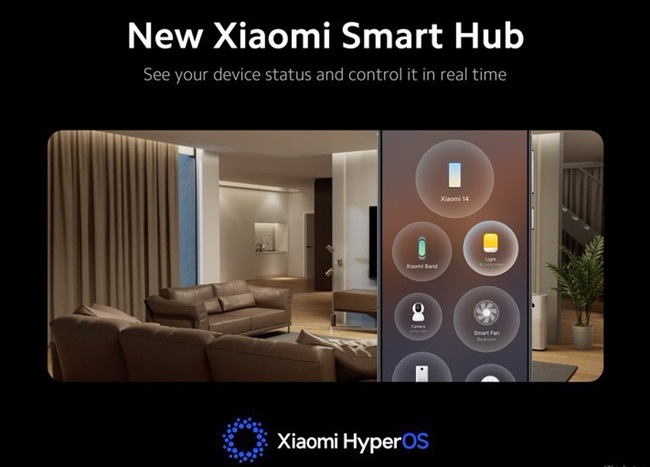
- Xiaomi HyperMind: Proactively understands user requirements and facilitates collaboration between surrounding devices based on usage habits.
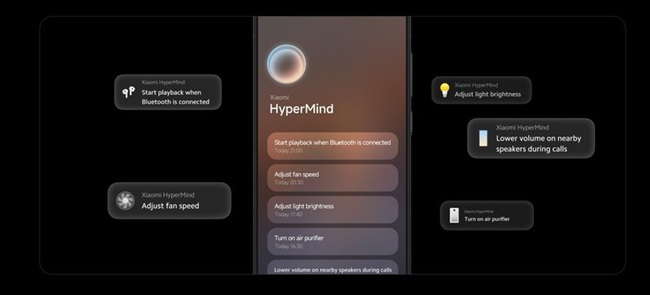
- End-to-End security: Implements mutual security checks and hardware-level encryption for reliability and privacy protection.

- One Smart ecosystem: Connects daily devices seamlessly, creating an intelligent mobile space centered around users.
- Consumer IoT platform: Utilizes the world’s largest consumer IoT platform to connect all devices, fostering human-centric innovation.
Availability and Roll-out Timeline in India
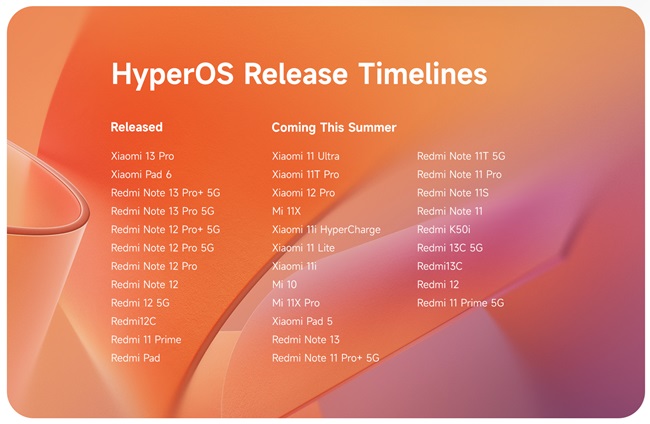
Last month, the Xiaomi 13 Pro, Pad 6, Redmi Note 13/12 Series received their HyperOS update, with more devices scheduled for the update this summer.
The list of devices is as follows:
| Released | March 2024 | Q2, 2024 |
| Xiaomi 13 Pro Xiaomi Pad 6 Redmi 12 5G Redmi 12C Redmi 11 Prime Redmi Pad |
Xiaomi 12 Pro Redmi Note 13 Pro + Redmi Note 13 Pro Redmi Note 13 Redmi Note 12 Pro + Redmi Note 12 Pro Redmi Note 12 |
Xiaomi 11 Ultra Xiaomi 11T Pro Mi 11X Xiaomi 11i HyperCharge Xiaomi 11 Lite Xiaomi 11i Mi 10 Xiaomi Pad 5 Redmi 13C Series Redmi 12 Redmi Note 11 Series Redmi 11 Prime 5G Redmi K50i |


